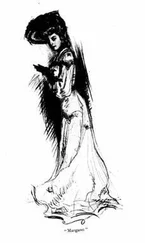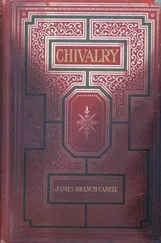James Cabell - The Certain Hour. Dizain des Poëtes
Здесь есть возможность читать онлайн «James Cabell - The Certain Hour. Dizain des Poëtes» весь текст электронной книги совершенно бесплатно (целиком полную версию без сокращений). В некоторых случаях можно слушать аудио, скачать через торрент в формате fb2 и присутствует краткое содержание. Жанр: Современная проза, на английском языке. Описание произведения, (предисловие) а так же отзывы посетителей доступны на портале библиотеки ЛибКат.
- Название:The Certain Hour. Dizain des Poëtes
- Автор:
- Жанр:
- Год:неизвестен
- ISBN:нет данных
- Рейтинг книги:4 / 5. Голосов: 1
-
Избранное:Добавить в избранное
- Отзывы:
-
Ваша оценка:
- 80
- 1
- 2
- 3
- 4
- 5
The Certain Hour. Dizain des Poëtes: краткое содержание, описание и аннотация
Предлагаем к чтению аннотацию, описание, краткое содержание или предисловие (зависит от того, что написал сам автор книги «The Certain Hour. Dizain des Poëtes»). Если вы не нашли необходимую информацию о книге — напишите в комментариях, мы постараемся отыскать её.
The Certain Hour. Dizain des Poëtes — читать онлайн бесплатно полную книгу (весь текст) целиком
Ниже представлен текст книги, разбитый по страницам. Система сохранения места последней прочитанной страницы, позволяет с удобством читать онлайн бесплатно книгу «The Certain Hour. Dizain des Poëtes», без необходимости каждый раз заново искать на чём Вы остановились. Поставьте закладку, и сможете в любой момент перейти на страницу, на которой закончили чтение.
Интервал:
Закладка:
And it seemed to Mr. Wycherley that he had gone divinely mad. "Don't lie to me, Olivia. You are thinking there are yet a host of heiresses who would be glad to be a famous beau's wife at however dear a cost. But don't lie to me. Don't even try to seem the airy and bedizened woman I have known so long. All that is over now. Death tapped us on the shoulder, and, if only for a moment, the masks were dropped. And life is changed now, oh, everything is changed! Then, come, my dear! let us be wise and very honest. Let us concede it is still possible for me to find another heiress, and for you to marry Remon; let us grant it the only outcome of our common-sense! and for all that, laugh, and fling away the pottage, and be more wise than reason."
She irresolutely said: "I cannot. Matters are altered now. It would be madness-"
"It would undoubtedly be madness," Mr. Wycherley assented. "But then I am so tired of being rational! Oh, Olivia," this former arbiter of taste absurdly babbled, "if I lose you now it is forever! and there is no health in me save when I am with you. Then alone I wish to do praiseworthy things, to be all which the boy we know of should have grown to… See how profoundly shameless I am become when, with such an audience, I take refuge in the pitiful base argument of my own weakness! But, my dear, I want you so that nothing else in the world means anything to me. I want you! and all my life I have wanted you."
"Boy, boy-!" she answered, and her fine hands had come to Wycherley, as white birds flutter homeward. But even then she had to deliberate the matter-since the habits of many years are not put aside like outworn gloves,-and for innumerable centuries, it seemed to him, her foot tapped on that wetted ledge.
Presently her lashes lifted. "I suppose it would be lacking in reverence to keep a clergyman waiting longer than was absolutely necessary?" she hazarded.
A BROWN WOMAN
"A critical age called for symmetry, and exquisite finish had to be studied as much as nobility of thought… POPE aimed to take first place as a writer of polished verse. Any knowledge he gained of the world, or any suggestion that came to him from his intercourse with society, was utilized to accomplish his main purpose. To put his thoughts into choice language was not enough. Each idea had to be put in its neatest and most epigrammatic form."
Why did I write? what sin to me unknown
Dipt me in ink, my parents', or my own?
As yet a child, nor yet a fool to fame,
I lisped in numbers, for the numbers came.
The muse but served to ease some friend, not wife,
To help me through this long disease, my life.
******
Who shames a scribbler? break one cobweb through,
He spins the slight, self-pleasing thread anew;
Destroy his fib or sophistry in vain,
The creature's at his foolish work again,
Throned in the centre of his thin designs,
Proud of a vast extent of flimsy lines!
"But I must be hurrying home now," the girl said, "for it is high time I were back in the hayfields."
"Fair shepherdess," he implored, "for heaven's sake, let us not cut short the pastorelle thus abruptly."
"And what manner of beast may that be, pray?"
"'Tis a conventional form of verse, my dear, which we at present strikingly illustrate. The plan of a pastorelle is simplicity's self: a gentleman, which I may fairly claim to be, in some fair rural scene-such as this-comes suddenly upon a rustic maiden of surpassing beauty. He naturally falls in love with her, and they say all manner of fine things to each other."
She considered him for a while before speaking. It thrilled him to see the odd tenderness that was in her face. "You always think of saying and writing fine things, do you not, sir?"
"My dear," he answered, gravely, "I believe that I was undoubtedly guilty of such folly until you came. I wish I could make you understand how your coming has changed everything."
"You can tell me some other time," the girl gaily declared, and was about to leave him.
His hand detained her very gently. "Faith, but I fear not, for already my old hallucinations seem to me incredible. Why, yesterday I thought it the most desirable of human lots to be a great poet"-the gentleman laughed in self-mockery. "I positively did. I labored every day toward becoming one. I lived among books, esteemed that I was doing something of genuine importance as I gravely tinkered with alliteration and metaphor and antithesis and judicious paraphrases of the ancients. I put up with life solely because it afforded material for versification; and, in reality, believed the destruction of Troy was providentially ordained lest Homer lack subject matter for an epic. And as for loving, I thought people fell in love in order to exchange witty rhymes."
His hand detained her, very gently… Indeed, it seemed to him he could never tire of noting her excellencies. Perhaps it was that splendid light poise of her head he chiefly loved; he thought so at least, just now. Or was it the wonder of her walk, which made all other women he had ever known appear to mince and hobble, like rusty toys? Something there was assuredly about this slim brown girl which recalled an untamed and harmless woodland creature; and it was that, he knew, which most poignantly moved him, even though he could not name it. Perhaps it was her bright kind eyes, which seemed to mirror the tranquillity of forests…
"You gentry are always talking of love," she marveled.
"Oh," he said, with acerbity, "oh, I don't doubt that any number of beef-gorging squires and leering, long-legged Oxford dandies-" He broke off here, and laughed contemptuously. "Well, you are beautiful, and they have eyes as keen as mine. And I do not blame you, my dear, for believing my designs to be no more commendable than theirs-no, not at all."
But his mood was spoiled, and his tetchy vanity hurt, by the thought of stout well-set fellows having wooed this girl; and he permitted her to go without protest.
Yet he sat alone for a while upon the fallen tree-trunk, humming a contented little tune. Never in his life had he been happier. He did not venture to suppose that any creature so adorable could love such a sickly hunchback, such a gargoyle of a man, as he was; but that Sarah was fond of him, he knew. There would be no trouble in arranging with her father for their marriage, most certainly; and he meant to attend to that matter this very morning, and within ten minutes. So Mr. Alexander Pope was meanwhile arranging in his mind a suitable wording for his declaration of marital aspirations.
Thus John Gay found him presently and roused him from phrase-spinning. "And what shall we do this morning, Alexander?" Gay was always demanding, like a spoiled child, to be amused.
Pope told him what his own plans were, speaking quite simply, but with his countenance radiant. Gay took off his hat and wiped his forehead, for the day was warm. He did not say anything at all.
"Well-?" Mr. Pope asked, after a pause.
Mr. Gay was dubious. "I had never thought that you would marry," he said. "And-why, hang it, Alexander! to grow enamored of a milkmaid is well enough for the hero of a poem, but in a poet it hints at injudicious composition."
Mr. Pope gesticulated with thin hands and seemed upon the verge of eloquence. Then he spoke unanswerably. "But I love her," he said.
John Gay's reply was a subdued whistle. He, in common with the other guests of Lord Harcourt, at Nuneham Courtney, had wondered what would be the outcome of Mr. Alexander Pope's intimacy with Sarah Drew. A month earlier the poet had sprained his ankle upon Amshot Heath, and this young woman had found him lying there, entirely helpless, as she returned from her evening milking. Being hale of person, she had managed to get the little hunchback to her home unaided. And since then Pope had often been seen with her.
Читать дальшеИнтервал:
Закладка:
Похожие книги на «The Certain Hour. Dizain des Poëtes»
Представляем Вашему вниманию похожие книги на «The Certain Hour. Dizain des Poëtes» списком для выбора. Мы отобрали схожую по названию и смыслу литературу в надежде предоставить читателям больше вариантов отыскать новые, интересные, ещё непрочитанные произведения.
Обсуждение, отзывы о книге «The Certain Hour. Dizain des Poëtes» и просто собственные мнения читателей. Оставьте ваши комментарии, напишите, что Вы думаете о произведении, его смысле или главных героях. Укажите что конкретно понравилось, а что нет, и почему Вы так считаете.



